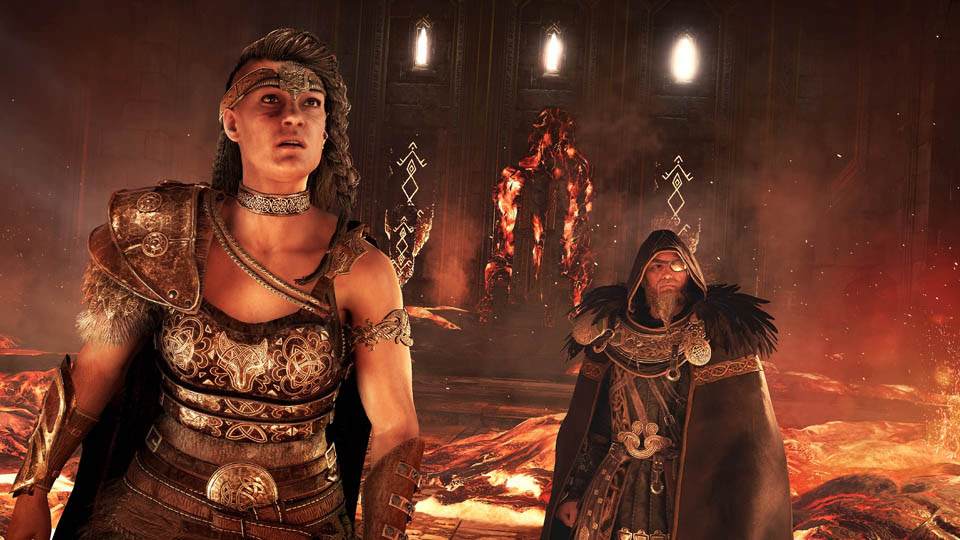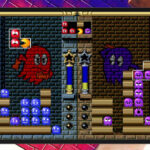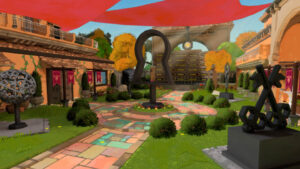Assassin’s Creed Valhalla provided Ubisoft with a challenge to overcome never before faced in the franchise’s storied history.
Every single main series entry has had numerous historical records to support the developer’s research. These are first hand sources written during their respective eras and they are of great help in building a believable game world. Researching Egypt, the American Revolutionary Wars and 19th Century London is relatively straightforward, if not a bit exhausting, thanks to all the historical texts available. Not so with the Vikings of the 9th Century. There’s a reason we call this period of history the Dark Ages, as we know precious little for certain about it. Not only that but the Vikings didn’t write anything down about themselves, their culture or their conflicts with others – apart from the odd rune stone or spot of graffiti on a cave wall. Instead, historians often have to rely on sources written many centuries after the actual events.
Why are Viking video games so popular right now?
That’s mighty inconvenient when creating a video game. Surely having more historical detail is always better? My reasoning is that knowing more will make it far easier to build an authentic environment for the player to inhabit. Bigger is better, right? It’s a question that I posed to Ubisoft’s historical advisor, Thierry Noel.
TSA: Is it true that during the development of Assassin’s Creed Valhalla you had a significant lack of supporting historical evidence?
TN: There’s so little evidence compared to Assassin’s Creed Origins on Ancient Egypt or AC Odyssey on Ancient Greece, there’s so little documentation. Obviously, in this case, we do the research you need but we also ask the experts; the historians, archaeologists and linguists. We ask them to help us rebuild that world in the absence of direct sources. But it’s always a case of careful reconstruction to fill the gaps.
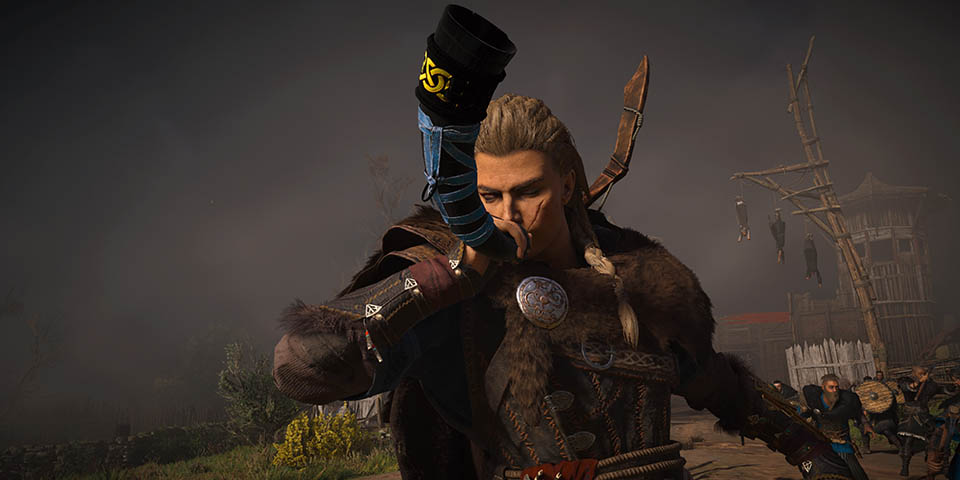
TSA: Talking of those gaps, are they a help or a hindrance?
TN: It’s quite the challenge, I think we were quite surprised at first. Sometimes it’s best to have the guidelines everywhere, so you can walk carefully on the timeline of the facts of history. But it’s also an advantage, you have more freedom to build something around it. In terms of authenticity, we try to stay in the guidelines, to fill the space with authentic elements. I’m not only talking about material culture, buildings, or things like this but to respect the culture, the spirit of the period. Even when you think you have a large opportunity to build what you want you still have to try to follow the logic of the period.
TSA: During your process, what’s the main priority when conducting historical research on an Assassin’s Creed title?
TN: It’s for the gamer. We’re making entertainment and adventure. It shows that in the case of Assassin’s Creed that history has in important place in it. It’s really important. We try to respect it as far as possible.
TSA: Just how deep did this research and pursuit of authenticity go?
TN: We reconstructed part of the language as there is very little vocabulary of lexicon left from the Norse. Also, part of Old English from the Anglo-Saxons. We had to reconstruct words that didn’t exist but always following rules.
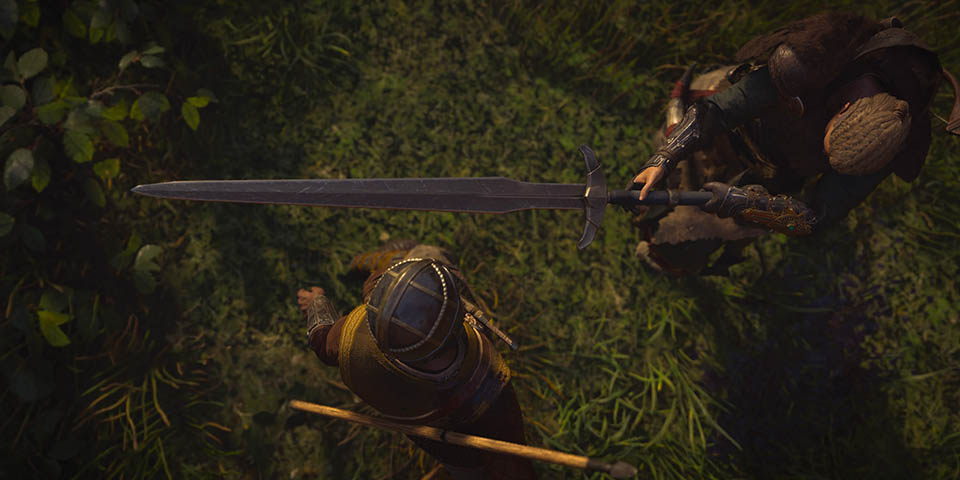
TSA: What about combat? Assassin’s Creed Valhalla was heavily marketed as a game that lets players “fight like a Viking” but how do we know how they fought?
TN: By studying the weapons they used and the style of combat of the period you can build something. We know for example that Vikings had a disruptive way to fight whilst the others, the Anglo-Saxons, were specifically trained and organised. The Vikings tried to break that order and create a huge brawl.
TSA: How did Viking stereotypes influence your research?
TN: The global idea of the super barbarian brute, we wanted to challenge that and to show behind this. It was understandable from the point of view of a monk from the 9th Century, he definitely could not have had a good image of Vikings. But we wanted to show beyond that, that they were their own culture, with their own society; with dreams and logic. For example, in the game there is the possibility of having your own settlement and to improve it, to make a clan prosperous.
TSA: Is there anything in particular you hope the player learn about the Viking era playing Assassin’s Creed Valhalla?
TN: That Vikings were very open to other cultures. Valhalla’s story takes place in Anglo-Saxons England and all these different cultural layers from the people who came there. From pre-Celt, Celt, Roman, Anglo-Saxon and Viking… they were living in a vivid culture, even when they were dated a thousand years earlier. The Vikings adopted part of the Christian religion, superficially or not, and then more deeply later on. Anywhere they went, they adopted cultures and brought it too. I think the idea that the game represents that idea of cultural exchange, that openness, I think that’s something important.
Since Valhalla launched, we’ve seen the game delve into the lore of Ireland’s druids, later depicting the Siege of Paris. In 2022, Ubisoft has taken a break from history it seems, Assassin’s Creed Valhalla: Dawn of Rangarok letting us slip into the well-worn boots of the All-father himself, Odin.
Playing with History is our ongoing series spotlighting video games and the real-world people and events that inspire them. From walking with dinosaurs in Jurassic World Evolution and talking real-life zombies in Days Gone, to learning about the Peaky Blinders, and chatting Ghost of Tsushima with a samurai expert, there’s plenty you may not have known about your favourite video games.
- 2022
- About
- ADvantage
- Adventure
- advisor
- All
- American
- around
- Authentic
- authenticity
- available
- before
- BEST
- Bit
- Boots
- build
- Building
- call
- case
- challenge
- could
- create
- Creating
- Culture
- detail
- Development
- DID
- different
- direct
- down
- dreams
- During
- Egypt
- England
- English
- Entertainment
- Environment
- events
- exchange
- experts
- First
- follow
- Freedom
- game
- Games
- Ghost
- Global
- good
- great
- Greece
- guidelines
- having
- history
- How
- HTTPS
- huge
- i
- idea
- image
- important
- improve
- influence
- IT
- language
- large
- launch
- LEARN
- learning
- London
- Making
- May
- mighty
- more
- open
- Opportunity
- order
- Other
- paris
- People
- player
- players
- Playing
- Plenty
- Point of View
- Popular
- possible
- Process
- RE
- records
- religion
- research
- rules
- s
- Series
- settlement
- significant
- So
- Society
- sources
- Space
- Spot
- stay
- Story
- straightforward
- style
- support
- talking
- The
- Ubisoft
- us
- Valhalla
- Video
- video games
- View
- Vikings
- vivid
- walking
- What
- WHO
- words
- world
- years
- youtube
